Paracrine Wnt signaling is necessary for prostate epithelial proliferation
- PMID: 35014711
- PMCID: PMC8866211
- DOI: 10.1002/pros.24298
Paracrine Wnt signaling is necessary for prostate epithelial proliferation
Abstract
Introduction: The Wnt proteins play key roles in the development, homeostasis, and disease progression of many organs including the prostate. However, the spatiotemporal expression patterns of Wnt proteins in prostate cell lineages at different developmental stages and in prostate cancer remain inadequately characterized.
Methods: We isolated the epithelial and stromal cells in the developing and mature mouse prostate by flow cytometry and determined the expression levels of Wnt ligands. We used Visium spatial gene expression analysis to determine the spatial distribution of Wnt ligands in the mouse prostatic glands. Using laser-capture microscopy in combination with gene expression analysis, we also determined the expression patterns of Wnt signaling components in stromal and cancer cells in advanced human prostate cancer specimens. To investigate how the stroma-derived Wnt ligands affect prostate development and homeostasis, we used a Col1a2-CreERT2 mouse model to disrupt the Wnt transporter Wntless specifically in prostate stromal cells.
Results: We showed that the prostate stromal cells are a major source of several Wnt ligands. Visium spatial gene expression analysis revealed a distinct spatial distribution of Wnt ligands in the prostatic glands. We also showed that Wnt signaling components are highly expressed in the stromal compartment of primary and advanced human prostate cancer. Blocking stromal Wnt secretion attenuated prostate epithelial proliferation and regeneration but did not affect cell survival and lineage maintenance.
Discussion: Our study demonstrates a critical role of stroma-derived Wnt ligands in prostate development and homeostasis.
Keywords: Wls; Wnt; homeostasis; prostate cancer; prostate stromal cells.
© 2022 Wiley Periodicals LLC.
Conflict of interest statement
Conflicts of Interest
The authors declare no conflict of interest.
Figures
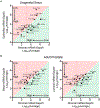
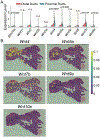
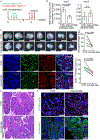
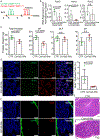
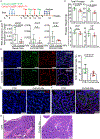
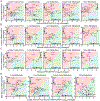
References
-
- Staack A, Donjacour AA, Brody J, Cunha GR, and Carroll P 2003. Mouse urogenital development: a practical approach. Differentiation 71:402–413. - PubMed
-
- Abate-Shen C, and Shen MM 2000. Molecular genetics of prostate cancer. Genes Dev 14:2410–2434. - PubMed
-
- Xin L 2019. Cells of Origin for Prostate Cancer. Adv Exp Med Biol 1210:67–86. - PubMed
-
- Marker PC, Donjacour AA, Dahiya R, and Cunha GR 2003. Hormonal, cellular, and molecular control of prostatic development. Dev Biol 253:165–174. - PubMed
Publication types
MeSH terms
Substances
Grants and funding
LinkOut - more resources
Full Text Sources
Medical
Miscellaneous

